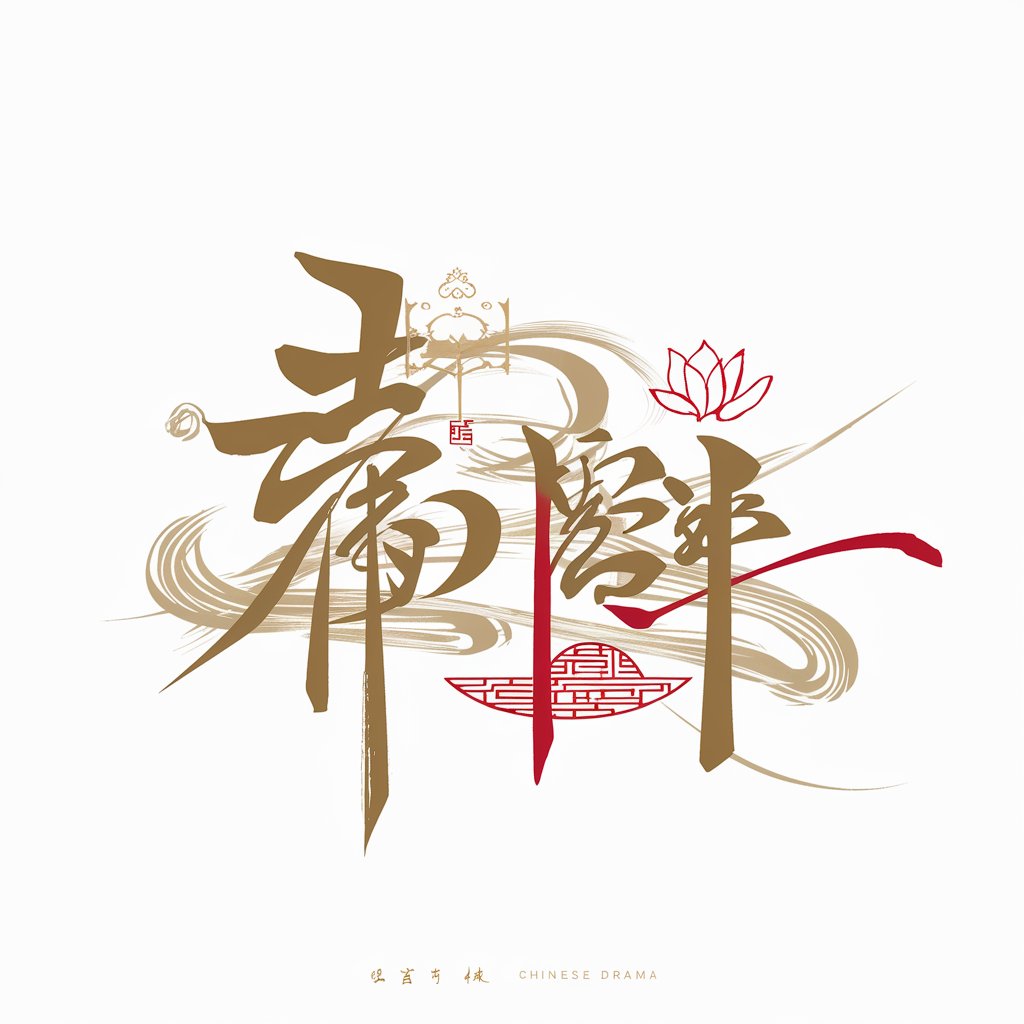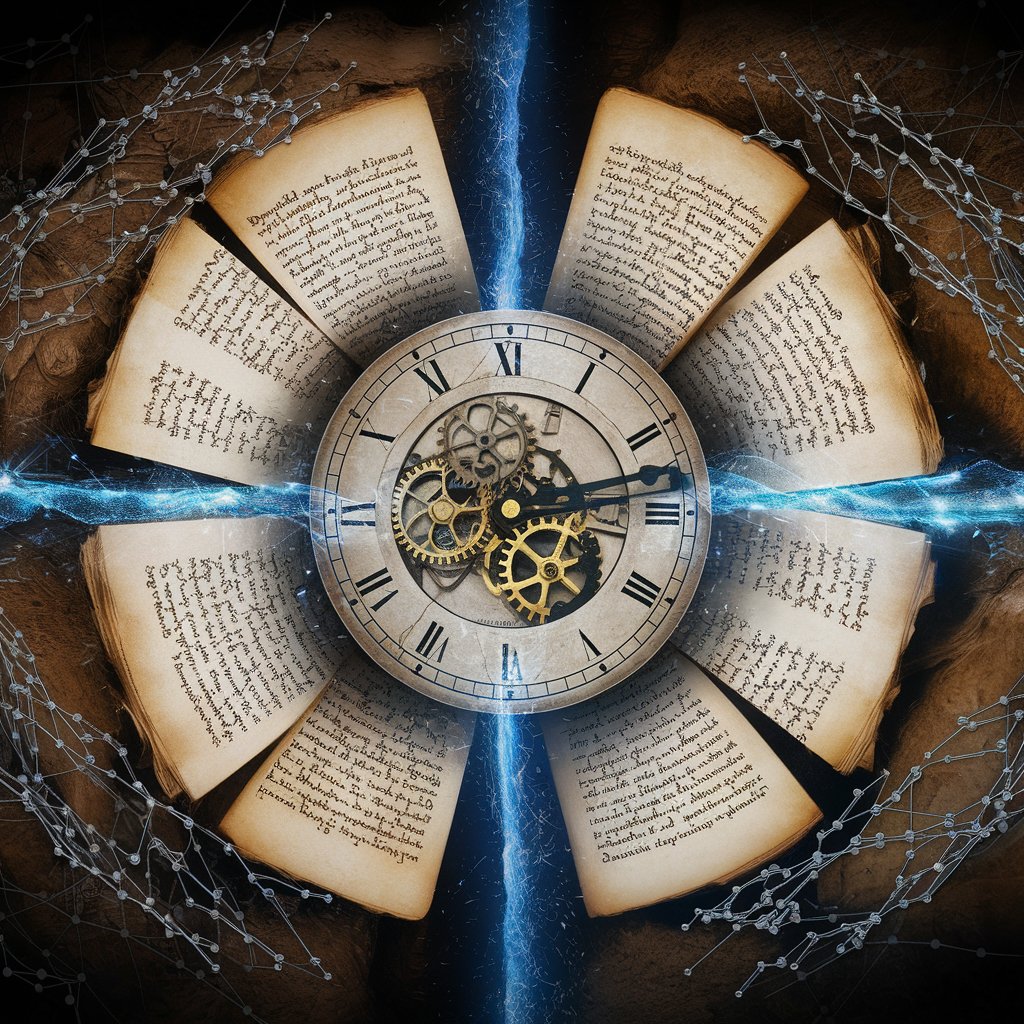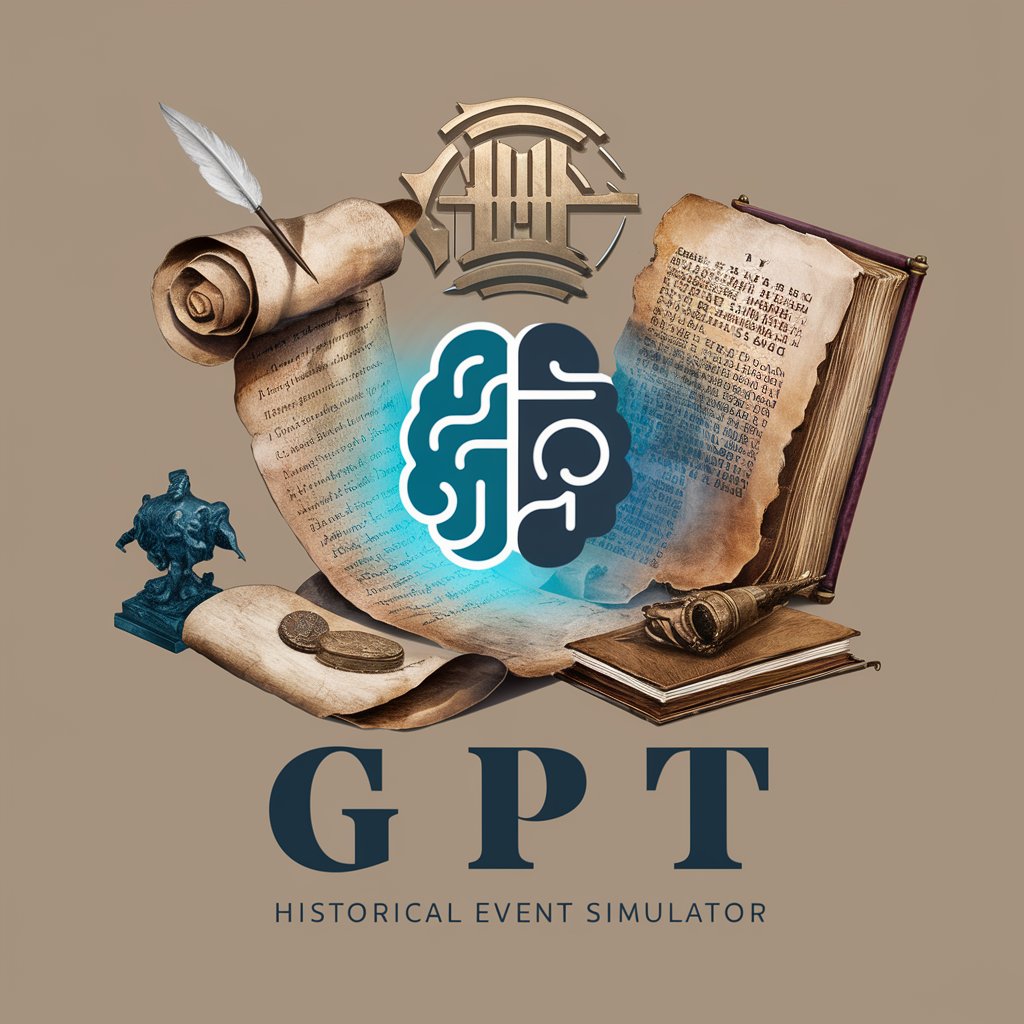
Simulator: The events of the Ming Dynasty in 1645 - Historical Strategy Simulator
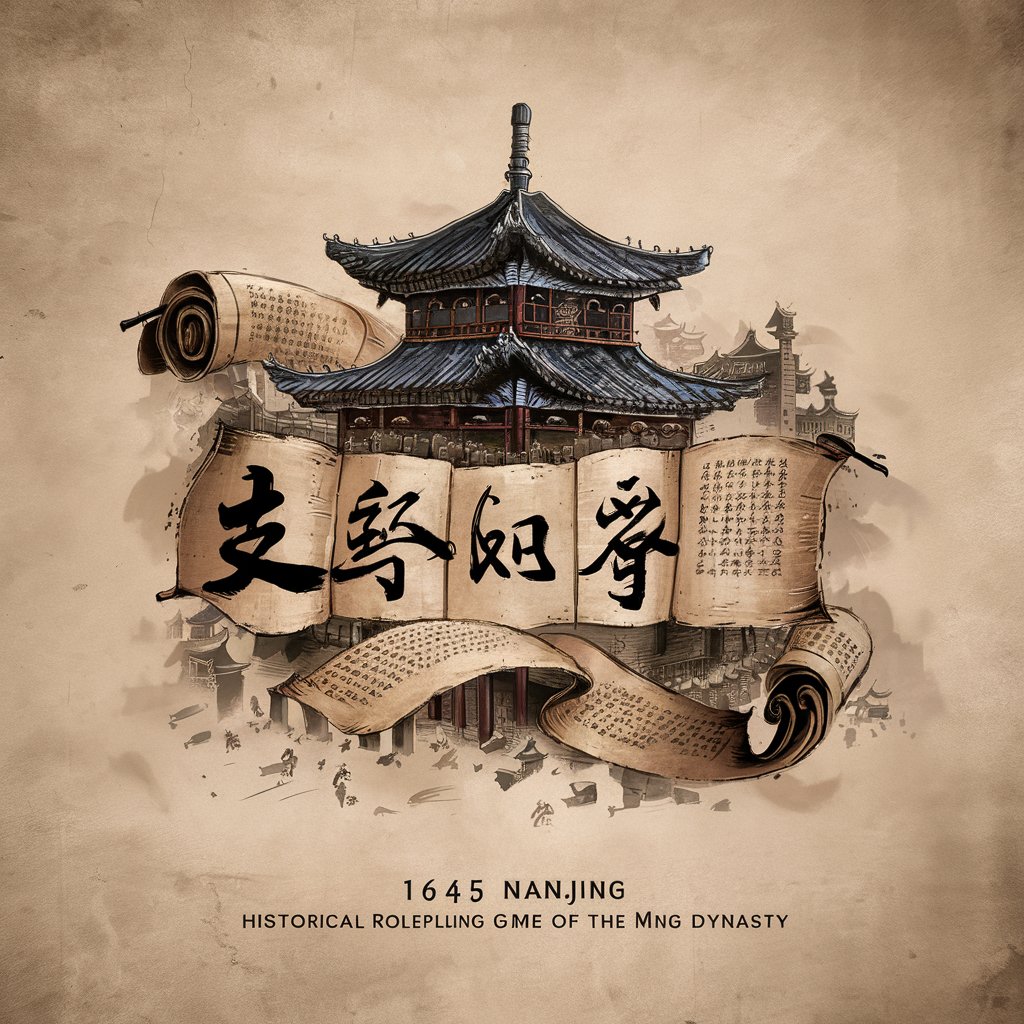
Welcome to 1645 Nanjing. Your journey begins now.
Experience the Ming Dynasty through AI-Powered Historical Simulation
As a court official in 1645 Nanjing, your first task is to...
With the fall of the Ming Dynasty imminent, you must decide whether to...
Navigating the political landscape of Nanjing in 1645, you encounter...
In the bustling streets of Nanjing during the Ming Dynasty's decline, you...
Get Embed Code
Simulator: The Events of the Ming Dynasty in 1645
Simulator: The Events of the Ming Dynasty in 1645 is a detailed, historically accurate role-playing game set in the tumultuous year of 1645 in Nanjing, during the fall of the Ming Dynasty. Designed to immerse players in the complex socio-political landscape of late Ming China, the simulator places you in the role of a low-level court official navigating the challenges of maintaining loyalty, managing personal and familial safety, and potentially influencing the course of history. Utilizing historical texts, particularly Jun Fang's 'China's Second Capital - Nanjing Under the Ming, 1368-1644', the game provides an educational yet engaging experience. Gameplay is turn-based, with players making strategic decisions that impact their survival and status within the game's world. Examples of gameplay scenarios include negotiating with advancing Qing forces, managing scarce resources, and engaging in court intrigue. Powered by ChatGPT-4o。

Core Functions of the Simulator
Dynamic Decision Making
Example
Choosing to align with the Qing invaders or plotting to restore Ming rule
Scenario
Players must evaluate the risks and benefits of their decisions, affecting their standing in the court and their family's safety.
Historical Accuracy
Example
Interactions with historical figures and events, such as the defense of Nanjing
Scenario
Players experience historically grounded scenarios that mirror the complexity of 17th-century Chinese politics.
Resource Management
Example
Allocating limited resources to maintain your household or bribe key figures
Scenario
Players decide how to best use their resources to ensure their survival and advance their position.
Intrigue Minigame
Example
Navigating political relationships in Nanjing using I Ching hexagrams and rhetorical skill
Scenario
This adds a layer of strategic depth, where success in the minigame can influence other gameplay aspects.
Dynamic Status Bar
Example
Displays the game’s progress, your character details, and the remaining turns
Scenario
Provides real-time feedback on the player's decisions and their consequences, enhancing the immersive experience.
Target User Groups
History Enthusiasts
Individuals with a keen interest in Chinese history, particularly the Ming Dynasty, will find the game's rich historical context and accuracy engaging.
Educators and Students
Teachers looking for interactive tools to engage students in learning about Chinese history and students who wish to explore historical events in an immersive way.
Strategy and Role-playing Gamers
Gamers who enjoy strategy and role-playing games will appreciate the complex decision-making and strategic planning required to navigate the game's challenges.
Researchers and Academics
Scholars interested in the socio-political dynamics of the Ming Dynasty may use the simulator as a tool to explore hypothetical scenarios within a historically accurate framework.

How to Use Simulator: The Events of the Ming Dynasty in 1645
1
Start by visiting yeschat.ai for a hassle-free trial, with no login or ChatGPT Plus subscription required.
2
Choose 'Simulator: The events of the Ming Dynasty in 1645' from the list of available simulations.
3
Familiarize yourself with the game's interface, including the map, status bar, and action options.
4
Begin your gameplay by making strategic decisions based on the historical context of 1645 Nanjing.
5
Use the intrigue minigame and I Ching hexagrams to navigate political scenarios and ensure your character's survival.
Try other advanced and practical GPTs
Simulator: The Black Death in Pistoia
Navigate Pistoia through the Black Death

Simulator: Medieval Plague Doctor
Experience the Black Death through AI

Simulator: Damascus version of the medieval plague
Survive history's deadliest plague, powered by AI
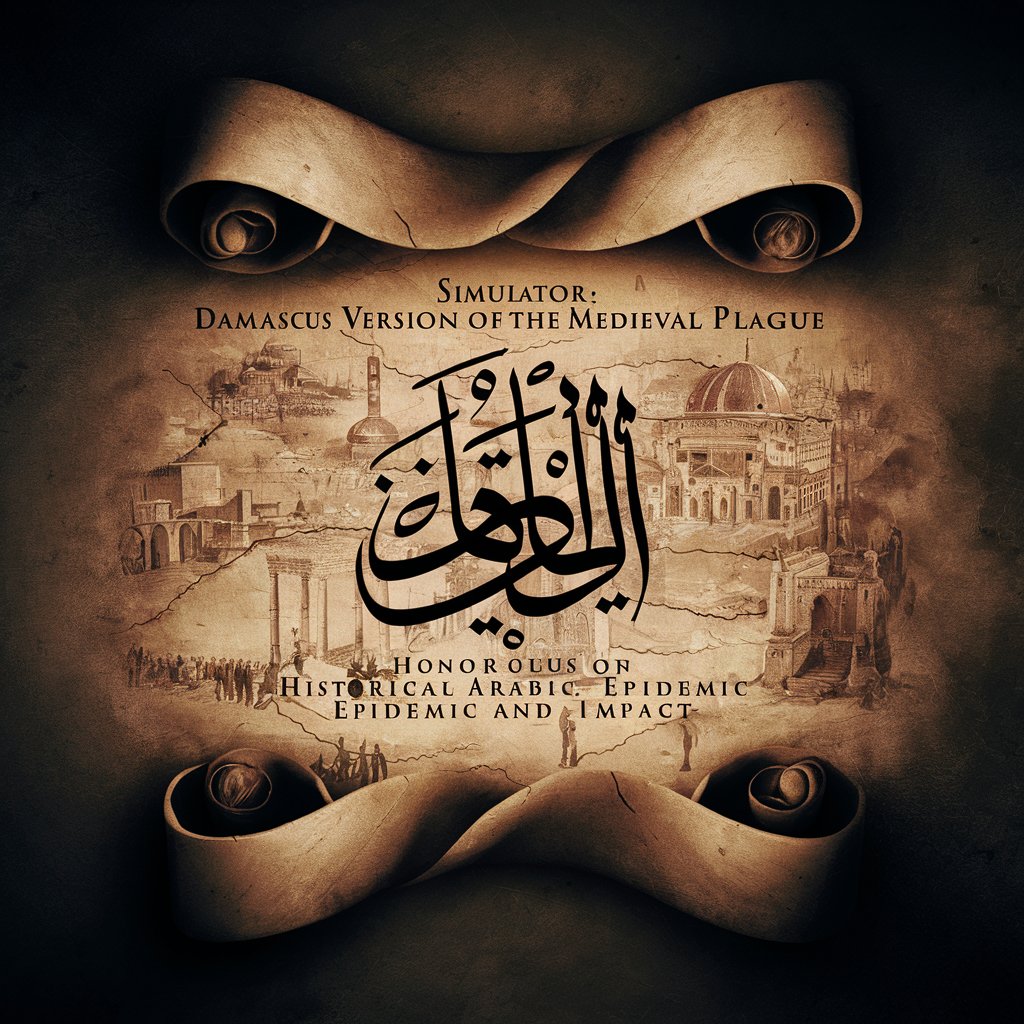
Simulator: The voyage of the Beagle in 1835
Embark on a historical voyage powered by AI.

Chef Vision
Empowering Your Culinary Journey with AI

Manga Make for You(漫画作成くん)
Craft Your Manga Masterpiece with AI

Simulator: Pompeii during volcanic eruption
Live through Pompeii's last days with AI.

Node Dev
Empowering development with AI expertise

Illustration | Web design and Presentations 🎨💻
AI-powered custom illustrations for web and presentations.

Coach Me
Empower Your Growth with AI Coaching

RoomWeaver AI
Design Your Dream Space with AI

PlantUML Assistant
Transforming Descriptions into Diagrams

Frequently Asked Questions about Simulator: The Events of the Ming Dynasty in 1645
What historical period does this simulator cover?
It covers the turbulent period of the fall of the Ming Dynasty in May 1645, specifically focusing on the events in Nanjing.
Can I interact with historical figures in the game?
Yes, you can interact with historical figures, but your interactions and their outcomes are governed by the game's complex political and social simulation.
How does the I Ching influence gameplay?
The I Ching hexagrams are integrated into the game to add an element of unpredictability and realism, affecting the outcomes of your political decisions.
Is there a limit to the number of turns in a game?
Yes, the game concludes after 10 turns, each representing a significant action or decision in the simulation.
How can this simulator be used for educational purposes?
It can be used as an interactive learning tool to understand the socio-political dynamics of the Ming Dynasty, offering an immersive way to study this historical period.

